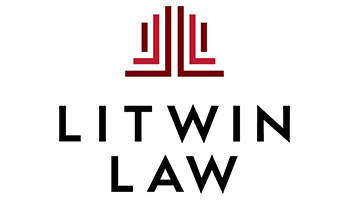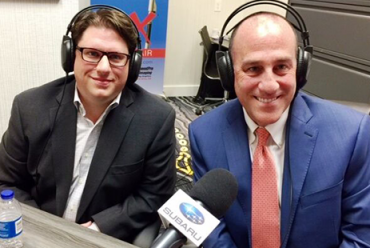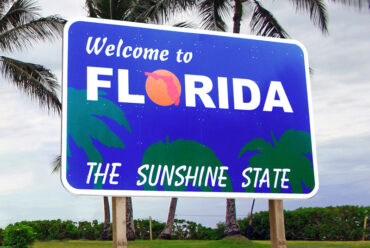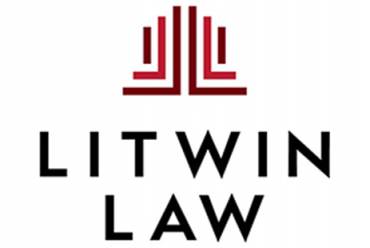Georgia Sales Tax Obligations Tied to Fundraising Activities and Events: Merchandise Sales and Gifts to Donors
Nonprofit organizations that hold fundraisers and/or sell merchandise face sales tax payment and collection obligations. The verbiage of the statutes and regulations often stymie an organization seeking to understand when payment and/or collection obligations apply. Unfortunately, in frustration, many nonprofit opt to overlook the requirements. Also, some organizations think that they are not obligated to collect sales tax — they believe that they are not required to collect tax because they do not routinely sell products or tickets. Other organizations think that their exemption from federal income tax extends to sales tax.
With a few exceptions, set out by state statute in the Georgia sales tax laws, nonprofit organizations must collect (and remit) sales tax on sales of product and must pay sales tax on purchases. Executive staff, board members, directors and outside advisors should take note of the organization’s sales tax collection obligations.
This article covers an Internal Revenue Code (I.R.C.) § 501(c)(3) nonprofit organization’s sales tax obligations tied to purchases and sales of merchandise. Other articles will cover (1) sales of tickets for admission to events, such as festivals and galas and silent auctions and (2) participation fees for charitable outings, such as marathons and fun runs/walks and tournaments.
Purchases by Not-for-Profit Organizations. A nonprofit organization that exempt from federal income tax under I.R.C. § 501(c)(3) (“NFP” or “organization”) must pay sales tax on all purchases of items for the organization’s use. This includes the organization’s purchases of items to be given away to donors as a token of appreciation or memento (discussed below). The organization can buy items tax-exempt only through a statutory exemption, found in the Georgia Revenue Code. Thus, for example, a PTA that buys band instruments to donate to the school band must pay sales tax on the purchases.
Sales Made by NFPs. A seller that sells merchandise to an end-user is a retail sale. The seller must collect sales tax and remit the tax to the government, unless the purchaser provides a resale or exemption certificate. The seller bears the burden to collect the tax or prove that the sale is not taxable.
The NFP should issue an invoice for each sale, separately-state the sales tax on the invoice and keep a copy of each invoice. Sales tax rates vary, especially in Metro Atlanta. The NFP must collect the tax based on the location where the item is delivered. If the NFP is located in the City of Atlanta but sells and/or delivers merchandise to a purchaser in Cumming, then the NFP should compute sales tax using the Forsyth County tax rate. The NFP should remit the collected tax to the Georgia Department of Revenue and file a sales tax return with the Department of Revenue, to report and remit the collected sales taxes. The NFP’s obligation to register for sales tax and file tax returns is beyond the scope of this article. Nevertheless, the NFP must register for sales tax collection and filing.
Items that the NFP Gives Away as a Token of Appreciation. An NFP may give a donor a small gift as a token of appreciation for a donation. The NFP must pay sales tax on the purchase of the items. The NFP must pay sales tax based on the county in which the NFP takes delivery of the gifts/giveaways. For example, assume that the NFP’s office is in Cobb County. As of January 1, 2025, the Cobb County rate is 6%. If the NFP takes delivery of the gifts/giveaways in Cobb County, then the NFP will pay the seller the Cobb County 6% tax rate. If the NFP transports the gifts/giveaways to an event in the City of Atlanta, then the NFP must self-report and pay the second-level county tax. Here, the NFP must accrue and remit an additional 2.9%, which is the City of Atlanta rate, of 8.9%, less the Cobb County rate, of 6%. If, however, the NFP receives the gifts at a location other than the NFP’s Cobb County office, such as a City of Atlanta event venue, then the NFP must pay the City of Atlanta rate, of 8.9% (and not the Cobb County 6% rate).
In conjunction with paying the correct tax on the purchase of the giveaways, the NFP should keep good records. The NFP should keep a record of the donation amount, the purchase price of the gift and the fact that the NFP paid sales tax up-front on the purchase of the gift.
Entities that do not have to Pay Sales Tax and/or Collect Sales Tax. The Georgia Revenue Code contains about 100 statutory exemptions, some of which apply to NFPs. If the Code does not contain an exemption for the purchase or sale of product, then the NFP should assume that the NFP’s purchase or sale is taxable. Below is an overview of some of the statutory exemptions applicable to purchases and/or sales by an NFP.
Religious institutions that have fundraisers do not have to collect sales tax, subject to four conditions. First, the merchandise sales must be tied to a specific fundraising activity. Second, the fundraiser cannot exceed 30 days in any calendar year. Third, no part of the proceeds or profits can inure to the benefit of a private person. Fourth, the proceeds must be used for purely charitable purposes of relief to aged, youth activities, religious instructions or worship or construction/repair of the sanctuary or facilities. The NFP should keep records and document on its Web site and publications these limitations for the fundraiser (e.g., our fundraiser will last from Feb. 1 through Feb. 28 and is to raise money for renovations for our social hall). Note that the NFP must pay sales tax on its purchases.
A private/public school does not have to collect sales tax on sales of concessions, merchandise, tickets for admission to a school event or function. The school must use the proceeds from the sales solely for the benefit of the school or its students.
Purchases by a private school are exempt from tax, so long as the school has written approval from the Georgia Department of Revenue. The school gives the seller a copy of the written approval, so that the seller does not charge sales tax.
A PTA must pay sales tax on its purchases. But a PTA does not have to collect sales tax on its sales, so long as the PTA is a charitable organization exempt from federal income tax under I.R.C. § 501(c)(3). Note, however, that this exemption does not apply to school booster clubs. Thus, if another school organization (e.g., touchdown club, tip-off club, foundation) makes sales to support athletics, music or arts programs make sales, then the entity must collect sales tax.
Other organizations benefit from statutory exemptions on the organizations’ activities. An NFP that buys noncommercial written materials or mailings to be provided to donors/supporters for educational, charitable, religious, or fundraising purposes is exempt from paying tax on the purchase of the materials, but the NFP must pay tax first and then file a refund claim. A licensed child-services provider can buy and sell items exempt but under specific conditions. A library fundraising organization whose primary purpose is to raise funds for books, materials and programs for public libraries and that is a §501(c)(3) charitable organization does not have to pay tax on purchases or collect tax on sales. Finally, the Boy Scouts and Girl Scouts do not have to collect sales tax on sales of food and food ingredients, such as Girl Scout cookies.
Conclusion. A nonprofit organization faces several sales tax compliance laws and must understand its obligations. The organization must ensure that it collects sales tax when required. Failing to collect tax could subject all responsible persons (jointly and severally) to personal liability for the uncollected sales taxes.
Litwin Law represents individuals and businesses in state and local tax matters. Litwin Law deals with a variety of issues that arise during audit and during protest and appeal to the state taxing agencies across the country.
Richard Litwin, a Fellow of the American College of Tax Counsel, a recognized Super Lawyer and U.S. News Best Lawyer, devotes his practice to multistate tax, state and local tax, and tax controversies. Mr. Litwin co-chairs the Georgia Department of Revenue/Tax Bar Liaison Committee. Mr. Litwin has chaired the State Bar of Georgia’s Section of Taxation and, currently, is a board member of the Atlanta Bar Association’s Section of Taxation. Mr. Litwin provides state tax counsel to several nonprofit organizations.
Note: “Pass the SALT” is a blog of The Litwin Law Firm, P.C., d/b/a Litwin Law, and is dedicated to sharing views and ideas on state and local taxation. This document is an overview and summary of state and local tax obligations. This document is not intended to be, nor should be interpreted as, legal advice. For legal advice, the reader should contact an attorney.








